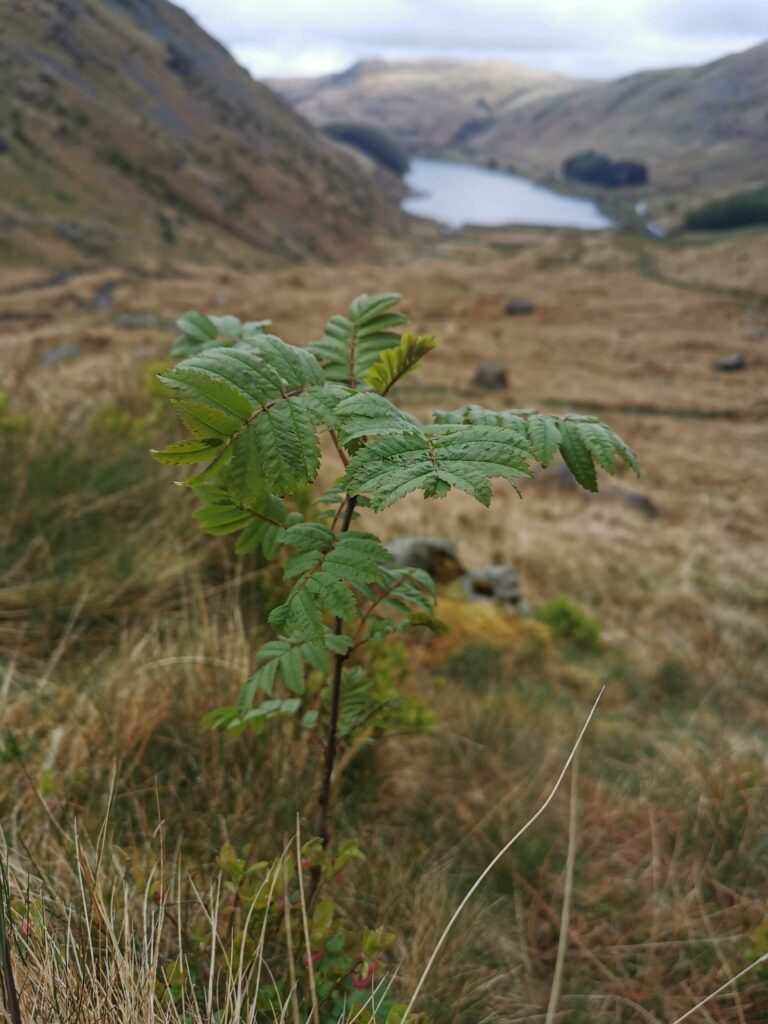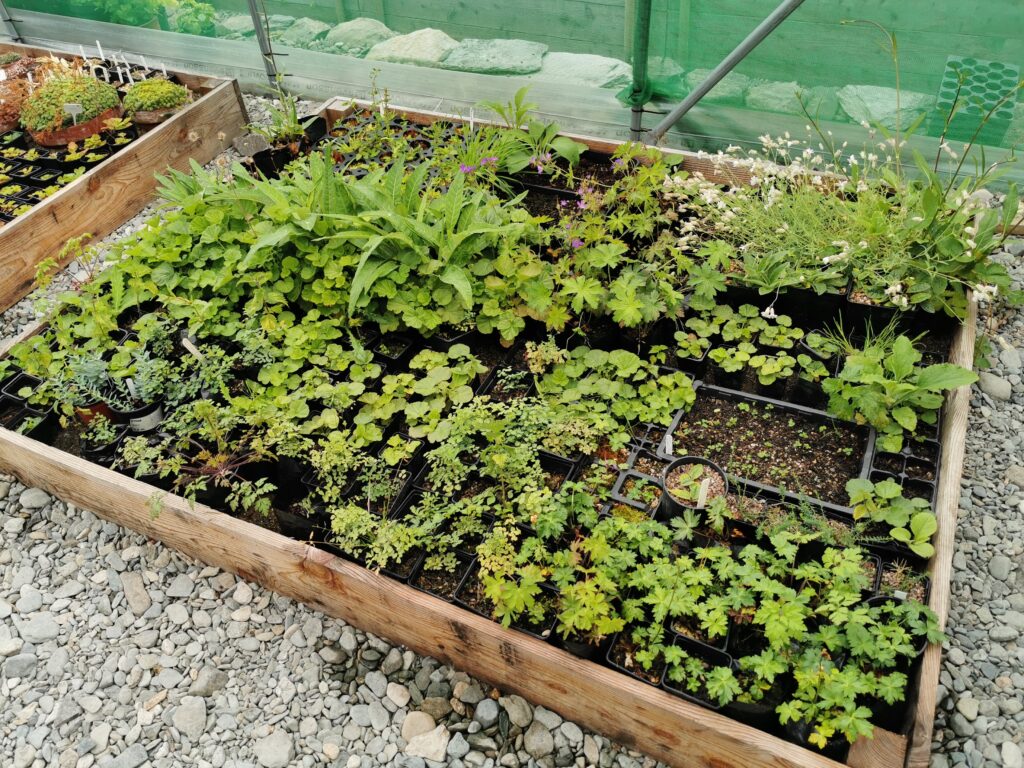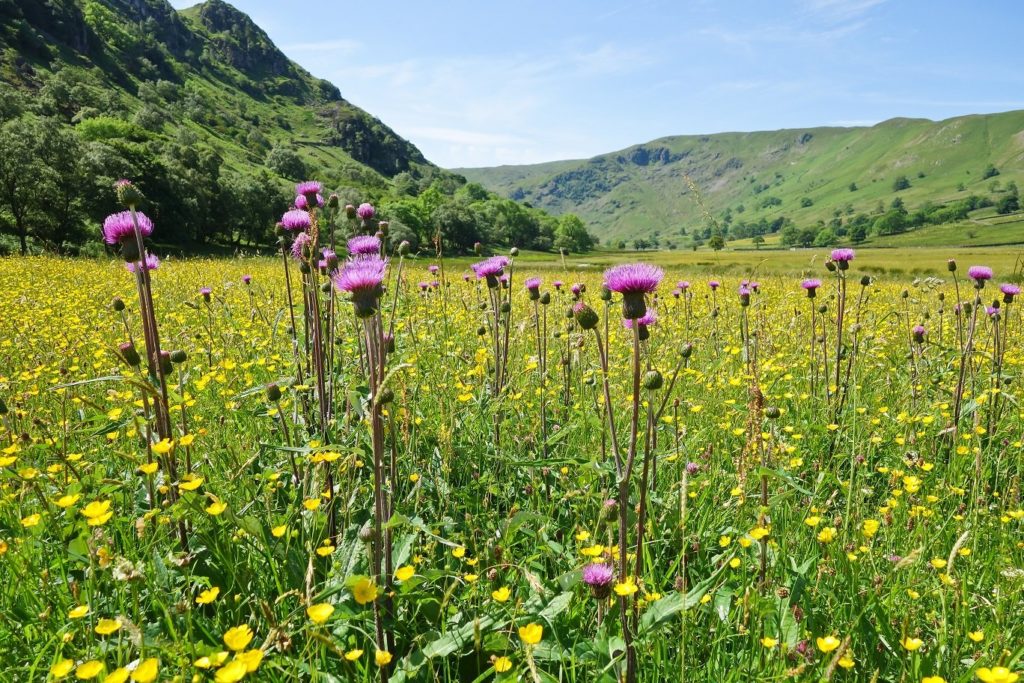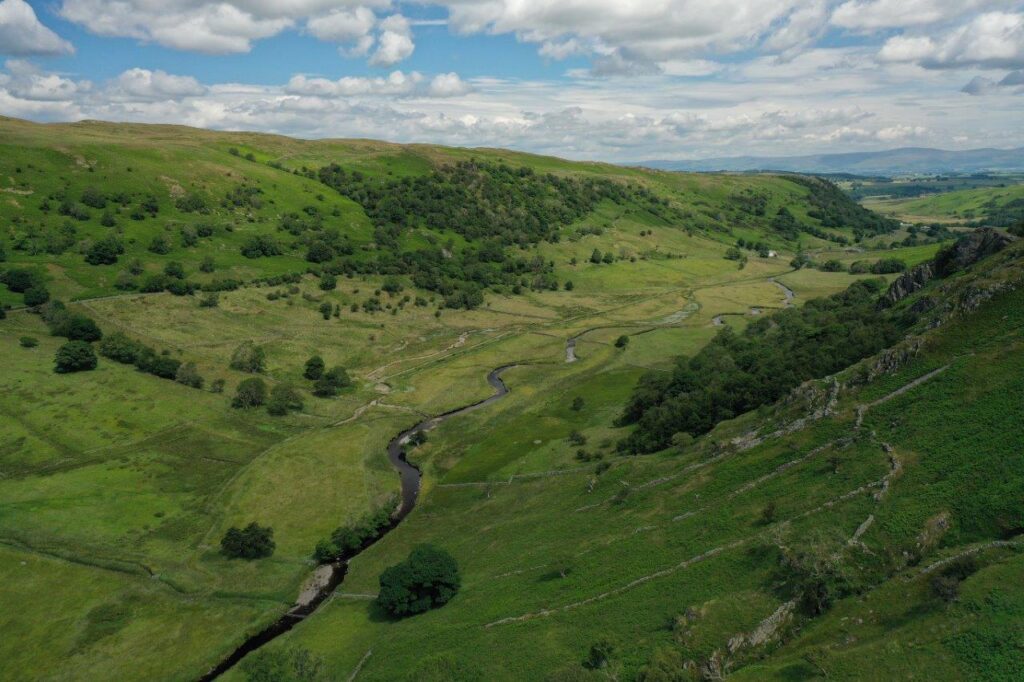
Natural regeneration at Haweswater (RSPB)
The Government has today announced that RSPB Haweswater will receive funds to set-up the largest native tree and wildflower nursery in the Lake District to aid green recovery; creating vital new jobs while helping to restore upland habitats. Working in partnership with landowner, United Utilities and a community of volunteers, the RSPB reserve team will also grow and plant 5,000 trees across the reserve by March 2022, as a natural solution to climate change.
The Green Recovery Challenge Fund grant of £249,900 will help the RSPB and United Utilities to recruit four new members of staff, alongside a work placement post and new opportunities for green-fingered volunteers. United Utilities has also provided an initial £100,000 of match funding towards the project. Once established, the nursery will generate 15,000 trees and wildflower plugs per year, including specialist species like juniper, globeflower and downy willow. Increasing woodland and scrub will give a more secure future for threatened woodland wildlife like red squirrels, pied flycatchers and redstarts.
The Green Recovery Challenge Fund is a short-term competitive fund to kick-start environmental renewal whilst creating and retaining a range of jobs. The aim of the fund is to support projects that are ready to deliver and focus on nature restoration, nature-based solutions and connecting people with nature, delivering against the goals of the Government’s 25 Year Environment Plan, whilst helping to sustain and build capacity in the sector.
“The project will contribute to our continuing aim of demonstrating that nature conservation and sustainable farming can go hand in hand”
Lee Schofield, RSPB Haweswater Site Manager
The small nursery currently being run at RSPB Haweswater is already helping to restore habitats across the reserve and dedicated staff and volunteers continued to look after fragile plants at home this spring, when Coronavirus restrictions meant travel for non-essential work put the nursery’s plants at risk. A grass roots initiative, the nursery currently only has capacity to grow some of the plants needed for the RSPB’s own habitat restoration projects. The new funding will enable to the existing nursery to be expanded, allowing native plants to be grown to aid habitat restoration elsewhere in the Lake District National Park, including United Utilities’ Thirlmere estate.
Alongside the benefits to wildlife, the funding will support the development of a range of nature-friendly income streams, helping to sustain the new jobs into the future.
Lee Schofield, RSPB Haweswater senior site manager says “We’re really excited about expanding our tree nursery at Haweswater. The funding will allow us to increase our habitat restoration ambitions on site, ensuring that the trees and wildflowers we plant are from as local a source as possible. The project will contribute to our continuing aim of demonstrating that nature conservation and sustainable farming can go hand in hand.”
John Gorst, Catchment Partnership Officer for United Utilities added; “This is an exciting project and the new nursery will not only provide important opportunities for people to connect with nature and learn new skills, it will also play a vital role in restoring large areas of United Utilities’ catchment land in the Lake District by providing a sustainable local source of trees and other specialist upland plants. Landscape restoration is a key element of our Catchment Systems Thinking (CaST) approach because it brings multiple benefits. These trees and plants will help in our work to improve catchment resilience to climate change, improve raw water quality and biodiversity, and make our landscapes a richer and more enjoyable experience for all who live, work and play in the Lake District fells.”
Find out more about our RSPB and United Utilities partnership initiative; Wild Haweswater.




